Frequently Asked Questions
-
How do you find out how much of a home loan I can get?
Factors that affect your financing:
• Debt-to-income (DTI)* ratio
• Assets
• Debt
• Credit
• Affordability
*Debt-to-income ratio is monthly income debt/expenses divided by gross monthly income.
-
Why is my credit score important?
Your credit score is a numerical representation of your statistical likelihood to repay the credit that is extended to you. A credit score is a snapshot of a specific moment in time but can and will change with new actions and the passage of time.
Expect the lowest possible interest rates and best terms in the below range
Excellent: 800-850
Very Good: 750-799
You will be eligible for most loans with good rates in the below range
Good: 700-749
Fair: 650-699
Only secured loans are given for people in the below range
Poor: 600-649
Very Poor: 300-599
*New American Funding is not a registered or licensed credit management service provider
-
What does the home financing process look like?
Step 1: Initial Consultation
This consultation covers:
- What you're looking to accomplish
- How long you plan on living in the home
- How much down payment you will need
- How much you want your monthly payments to be
Step 2: Pre-Approval
A pre-approval* is based on a preliminary review of credit information provided to the lender and signifies that you’ve done an application and provided the necessary documentation. This lets sellers know you’re serious about purchasing a home.
*Pre-approval is based on a preliminary review of credit information provided to New American Funding which has not been reviewed by Underwriting.
Final loan approval is subject to a full Underwriting review of support documentation including, but not limited to, applicants’ creditworthiness, assets, and income information, and a satisfactory appraisal.
Step 3: Processing
After you have completed a loan application, your loan file is submitted to the loan processor.
- The processor reviews your file and orders your property appraisal.
- Depending on your situation, the processor may need additional documentation during this step.
- Once your loan file is completed, the processor submits it to underwriting for approval.
Step 4: Underwriting
The underwriter reviews your loan file to ensure all guidelines are met for the specific loan program and issues a loan decision.
Once your mortgage has been approved and all conditions have been cleared, your loan is moved to “Clear to Close” status.
Step 5: Pre-Closing
You will receive a loan commitment letter that contains details of your loan, including:
- Rate
- Amount
- Term
- Outstanding conditions that need to be addressed before the file is sent to closing
Once everything is cleared by the underwriter, our closing department will complete your final documents.
Step 6: Closing
During closing, you will sign a variety of final documents.
Be sure to bring:
- Photo ID
- Proper form of payment to cover down payment, closing costs, prepaid interest, taxes, insurance or any additional costs – don’t worry, we help you know what is a proper form of payment.
From there – CONGRATS! You are now a homeowner.
-
What are things I shouldn’t do when applying for a mortgage?
- Don’t close or open any asset accounts or transfer funds between accounts without talking with your Loan Officer about the proper documentation required for your loan.
- Don’t deposit any monies outside of your automated payroll deposits, particularly cash or sale of personal property, without notifying your Loan Officer.
- Don’t change jobs/employer without inquiring about the impact this change might have on your loan.
- Don’t make major purchases prior to or during your contract, such as a new car, furniture, appliances, etc.
- Don’t open or increase any liabilities, including credit cards, student loans or other lines of credit during the loan process.
For more do's and dont's visit our do's and dont's section via our apply now page.
-
What are things I should do when applying for a mortgage?
- Keep originals or be able to access on your employer/bank websites all pay stubs, bank statements and other important financial documents.
- Provide your Earnest Money Deposit from your own personal bank account or acceptable gift funds.
- Notify your Loan Officer if you plan to receive gift funds for closing. Gift funds are acceptable only if certain criteria are met.
- Notify your Loan Officer of any employment changes, such as a recent raise, promotion, transfer or change of pay status (for example, from salary to commission).
- Be aware that a new credit report could be pulled just prior to closing.
-
What is a rate lock?
A rate lock entails an agreement between you (the borrower) and us (the lender), ensuring that a predetermined interest rate will be offered to you throughout a specified period (known as the rate lock period).
-
When is my rate locked?
We will secure and lock in your interest rate upon receiving your verbal or written authorization.
-
What if rates go up before I close my loan?
Once your rate is locked, we promptly secure funds from our investors at the agreed-upon rate. Assuming your loan application is approved and all conditions are met, these funds will be accessible to you at your loan closing, irrespective of market fluctuations that may occur after your rate lock. Rest assured that if interest rates rise, your locked rate will be honored on your loan documents at the closing date, and we will never impose a higher interest rate due to market fluctuations.
-
If rates appear to be dropping, why shouldn’t I wait to lock a rate?
Consider this: What would be more disappointing – locking in a rate and later realizing you missed a potentially lower one, or not locking your rate and discovering that rates have surged? Our goal as advisors is to guide you in determining the optimal time to secure an interest rate, drawing from our professional assessment of market conditions and your unique objectives. While we may not always hit the absolute lowest rate, attempting to time the market can be risky. Frequently, the market experiences sudden spikes, leaving clients wishing they had locked their rate. It's essential to remember that if rates continue to decline, you have the option to refinance your loan (subject to our post-closing refinance policy).
-
How soon can I refinance my rate after closing?
As lenders, our contractual commitment with investors mandates that the loans we initiate remain on their portfolios for a minimum of 120 days. Should the loan be paid off within this period, such as through a refinance, we are obliged to reimburse the compensation we received for our initial loan services. Although we cannot prohibit you from refinancing within the initial 120 days, we kindly request, in good faith, that you consider refraining from such actions.
-
What's in a mortgage payment?
A mortgage payment consists of four components:
- Principle: the original amount of money owed
- Interest: The charge for the use (loan) of money
- Taxes: these are assessed by county, your lender typically pays your taxes
- Insurance: Homeowners insurance; a type of insurance policy that provides coverage for potential losses or damages to a home and its contents. Homeowners insurance typically includes protection against risks such as fire, theft, vandalism, and certain natural disasters.
-
Why is it so hard to get a home loan?
2004-2006: The Financial Crisis: Deregulation and Its Role in the Mortgage Meltdown
- The root cause of the financial crisis can be traced back to deregulation within the financial industry. This deregulation allowed banks to participate in hedge fund trading using derivatives. As a result, banks sought an increased volume of mortgages to bolster the lucrative sale of these derivatives, leading to relaxed mortgage approval standards. Essentially, these lenient guidelines made it possible for almost anyone to qualify for any home loan amount.
2008-2010: Key Events During the 2008 Financial Crisis and President Obama's Response
- During the 2008 financial crisis, home prices plummeted by 34%, coinciding with a stock market crash in September 2008. This period also saw the election of President Obama, who took office with the daunting task of reviving an economy in shambles, described as the worst since the Great Depression. His primary focus was on economic recovery, and he initiated a series of reforms targeting Wall Street, large banks, and the mortgage and real estate sectors. These actions marked the onset of increased regulation within the mortgage industry.
2010-2016:Over-regulation, Bailouts, Legislation, and Economic Recovery
- Amid the 2008 financial crisis, home prices experienced a staggering 34% decline, coinciding with a significant stock market crash in September 2008. This period also witnessed the election of President Obama, who assumed office facing the monumental task of revitalizing an economy in turmoil, widely regarded as the worst since the Great Depression. President Obama's primary objective was economic recovery, prompting a series of reform measures aimed at Wall Street, major banks, and the mortgage and real estate sectors. These proactive steps marked the beginning of increased regulatory oversight within the mortgage industry.
Fast forward to today... all of these guidelines are still in effect.
-
What do I bring to the closing table?
- Bring two forms of identification
- You'll also want to make sure to provide your down payment and any closing cost fees. This is usually done via wire transfer from your bank at least 24 hours before closing. Instructions will be sent by the escrow company.
- Bring any missing documentation or lender conditions.


